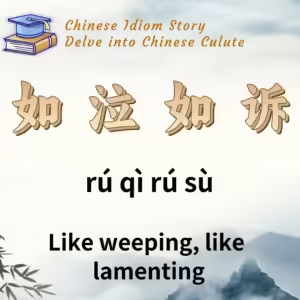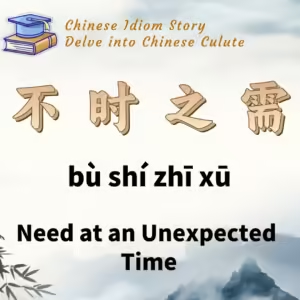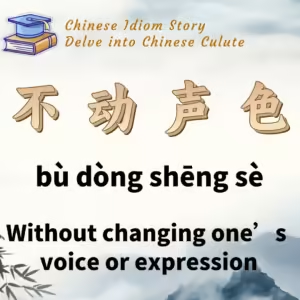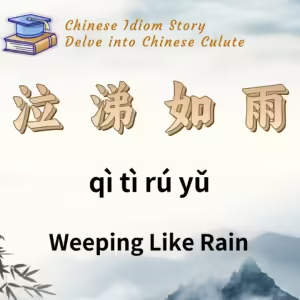
Chinese Idiom: 如泣如诉 (Ru Qi Ru Su)
English Translation: Like weeping, like lamenting
pīn yīn: rú qì rú sù
Idiom Meaning: This idiom describes a voice or sound that is full of sadness and sorrow, resembling crying or complaining. It conveys a sense of deep emotional expression.
Historical Source: 《前赤壁赋》 (Preface to the Red Cliffs), written by the Northern Song Dynasty poet Su Shi.
Idiom Story:
In the second year of the Yuanfeng era (1079 AD), Su Shi was demoted to the position of deputy commander in Huangzhou (now Huanggang, Hubei) due to his satirical poetry and writings that criticized the government. During the fifth year of Yuanfeng, Su Shi traveled to the Red Cliffs in Huangzhou with friends and composed two essays on the Red Cliffs, known as “Preface to the Red Cliffs” and “Postscript to the Red Cliffs.”
Though the Red Cliffs in Huangzhou were not the same as the historical battlefield of the Three Kingdoms, they were associated with legendary battles between Sun Quan and Cao Cao. In “Preface to the Red Cliffs,” Su Shi vividly describes the beauty and tranquility of the autumn night at the Red Cliffs and the leisurely boat ride with his friends.
In the essay, Su Shi writes:
“Thus, we drank to our heart’s content, beating the boat’s edge and singing. The song went: ‘The osmanthus pole and orchid oar, part the clear moonlit water and drift upstream. My thoughts grow more profound, longing for the beauty who is far away.’ Among the guests was a man playing the xiao (a type of bamboo flute), who harmonized with the song. The sound of the xiao was mournful, as if in grievance or longing, like weeping or lamenting. The lingering notes were soft and long, like a fine thread that never ends. The music could make the hidden dragon in the deep water dance and make the lonely boat’s widow weep.”
In this description, Su Shi uses “如泣如诉” to capture the evocative and melancholic quality of the xiao music, which seemed to embody both weeping and lamentation, deeply moving the listeners. This poetic imagery led to the creation of the idiom “如泣如诉,” which is now used to describe a voice or sound that conveys profound sorrow or emotional expression.






